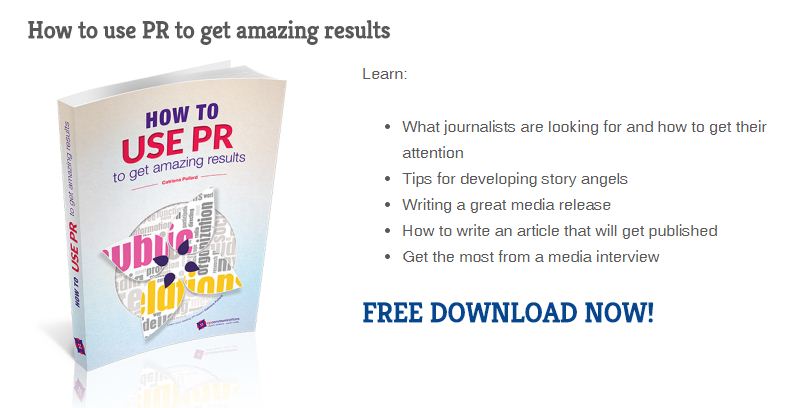4 things to improve your media pitch subject line
Great content is essential to creating a media pitch but this is not enough for a journalist to take notice. Over time contacting a journalist with a pitch has evolved from a phone call to an email as journalists have limited time and prefer to be contacted via their inbox, but don’t be discouraged you can still follow up with a phone call.
Fractl reports 85 per cent of journalists decide if they are interested in a pitch based on the subject line alone. Journalists receive hundreds of email pitches per day, it is important to consider the subject line as it will determine if the email is opened.

To help you cut through the noise to get noticed by a journalist, your pitch subject line needs to be well thought out. Here are some tips to creating an attention grabbing pitch subject line.
Keep it brief
Ensure your subject lines are short and descriptive. A good rule of thumb is to limit the subject line to 10 words maximum. This is so the journalist can get a sense of what information is being provided prior to opening the email in a short succinct headline.
Play on the journalist’s interests
When looking to send out a pitch it is imperative you conduct research to determine which journalists to contact. Think about the topic of your pitch and who is likely to be interested in this. Conduct research to find specific journalists, what they write about and their reporting styles. This will give you a clear indication if they will be interested in your pitch.
To create an attention grabbing subject line, read the journalist’s articles and check out their social media channels to see if there are any buzzwords or topical information and utilise these in the subject line. Sending a generic pitch will not be appealing to a journalist, it must be targeted.
Stick to the facts
If your pitch contains a key fact or statistic this could be the hook needed to get the journalist to open your email. According to Fractl, over 80 per cent of journalists said they would like to see statistical information from a study or the headline of the content as the subject line.
Funny or witty subject lines proved to be unpopular with less than 20 per cent surveyed opting for these types of subject lines. It is thought funny subject lines or those aiming to be personal are click bait emails, these emails are more likely to be sent to the trash than opened. Remember an interesting fact or statistic is preferred to a witty, humorous or personal subject line.
Do your research
If you are unsure your subject lines will cut through, try reading a magazine or newspaper and see what headlines catch your eye. Ask yourself what was it about this headline that made you stop and want to read on, how many words were used, was it factual or humorous, what section or topic is the article on. The more research and analysis you do, you will have a greater understanding of the types of headlines that appeal to a journalist and can create a subject line to suit.
Your subject line is just as or possibly more important than the email pitch itself. These are a few tips to helping create a subject line that will cut through the noise and get the attention of a journalist.
